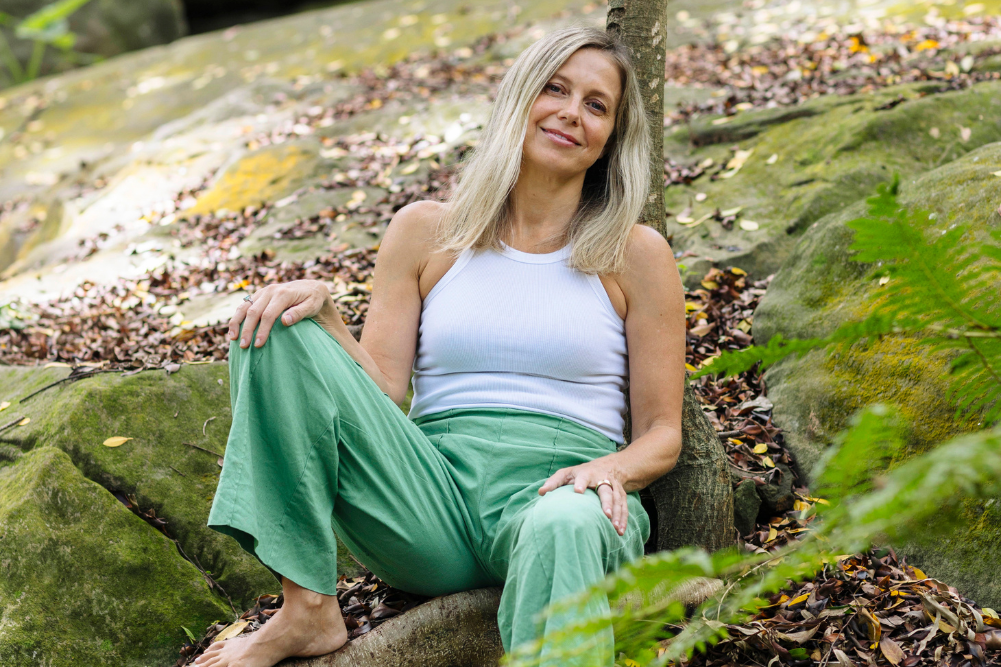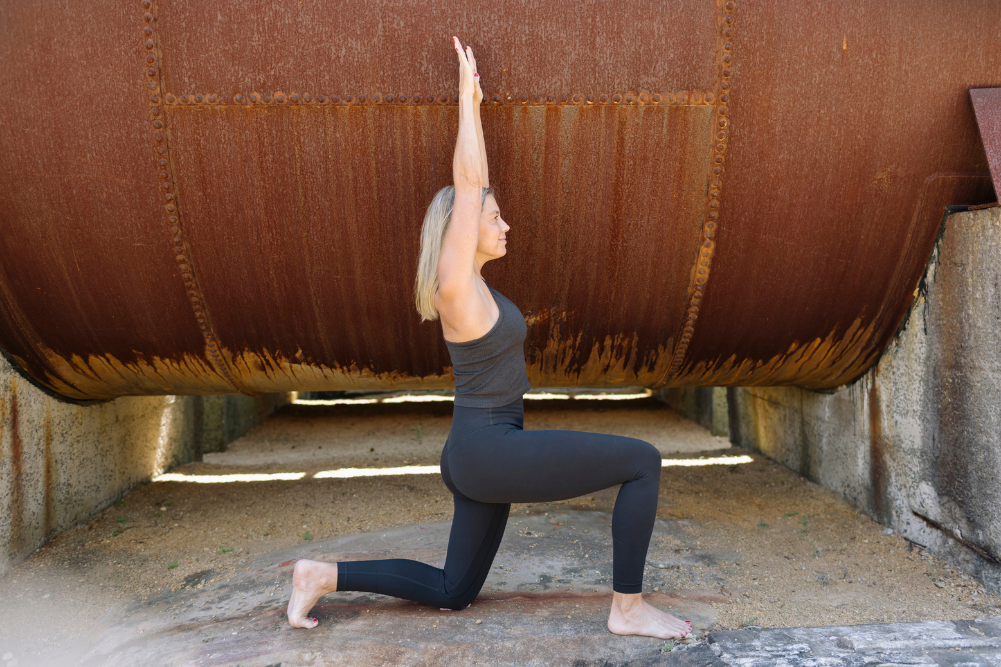5 inspiring yoga teachers share how they bring compassion to their life and practice
Compassion, or karuna as it’s known among yogis, is a key element of the spiritual path. Here, five yoga teachers share how they bring compassion to their life and practice.
Sarah Owen
Sydney, Australia
What does compassion (karuna) mean to you?
I see compassion as being closely related to loving-kindness — a capacity to soften into our experience with curiosity and gentleness instead of shutting off from it through aversion. Both loving-kindness and compassion can be extended towards self or others. Compassion is one of the “four immeasurables” from the Buddhist traditions, along with loving-kindness, equanimity and joy. These “boundless qualities” can be incorporated into our daily intentional practice both on and off the mat.
Why is it important to exercise compassion from a yoga standpoint?
Yoga is a path of awakening. Through our yoga practices we are able to see the nature of things more clearly and we begin to notice that all things are connected. Rather than creating disconnect, the practice of compassion brings people together and allows us to recognise our shared humanity. The key to yoga is intention. You can be practising yoga all day long if your mind is continually resting on your intention, so exercising compassion is a great way to practise yoga off the mat.
How did you learn to start practising compassion toward yourself?
For many people, extending compassion to themselves can be extremely challenging. It is helpful to remember that it is a practice — and the more you practise, the easier it becomes. Yin yoga has been a great way for me to include compassionate self-enquiry in my daily practice. Yin creates a compassionate holding space where myriad things can (and will!) arise, without needing to move to fix, change or criticise what comes up. A compassionate and curious mood is cultivated as part of the yin yoga practice, so it naturally becomes second nature for when I’m off the mat.
How can we offer compassion to others without feeling overwhelmed?
We can start by offering compassion towards ourselves. Only to the degree that we are able to look with loving-kindness and compassion at our own circumstances are we able to offer that to another person. It takes courage to “lean in” to someone’s challenging experience, rather than “move away” from it. We can start by holding the space in a compassionate way for our own challenging experiences without moving into criticism or blame.
What are simple ways people can cultivate compassion?
Use each day as an opportunity to open yourself fully to the impermanent and continually changing experience you have as a human being, and practise your capacity to remain open-hearted and curious-minded. Make an intention to notice your biases and prejudices with kindness and curiosity, and to cultivate a continual mood of kind curiosity towards your life and experiences. Approach each moment with an open heart and clear mind.
Sarah Owen is a leading yin yoga teacher and the only endorsed Insight Yoga teacher in Australia. As a complement to her yoga practice, she specialises in meditation: teaching concentration methods and insight methods of mindfulness meditation with compassionate self-enquiry.
Sal Flynn

Byron Bay, Australia
What does compassion (karuna) mean to you?
Compassion is not a quality we can acquire, but we can make space for it to arise from where it naturally resides within us. For me, this practice begins with deep listening, deep enquiry into my own messy mind and its content. Slowly, gently, returning again and again to my own heart-mind, I make contact with my capacity for self-acceptance. When I’m able to recognise my own doubts and fears as phenomena arising in my mind, I no longer see them as representative of who I am. They are the obstacles to meaningful relationship; when I can “turn down” the volume, I can accept others unconditionally. With dedication to sincere mindful practice, we can all cultivate the capacity to discriminate in this way. Gradually that part of us which is already the clear light of true compassion becomes more apparent and, as we recognise this in ourselves, we can recognise it in others. Humanity meets humanity with an open heart.
Why is it important to exercise compassion from a yoga standpoint?
When we invite yoga into our lives we take a courageous step into the process of change, the unfolding of our evolution. This takes courage because, in doing so, we will face the uncertainty that always accompanies change. It’s natural that we’ll struggle, bump up against our limitations, so a compassionate stance toward ourselves soothes the struggles, reminds us our practice is indeed an act of love, of deep warm friendship towards self. Yoga allows us to reach inside and make contact with our potential to become who we have always been, but have at times forgotten.
How did you learn to start practising compassion toward yourself?
My acquaintance with self-compassion began with an intense interest in the nature of existence, accompanied by a curiosity to understand who I was. When I first started yoga, it felt like it could be a vehicle for that enquiry. I saw also how it could enrich my life off the mat: my work, my relationships. It began fuelled by the exuberance of youth and my excitement about what I saw as a chance to touch this “something” that felt sacred. As often happens, burning enthusiasm left unchecked can become the fire of self-aggression, but with the wise guidance of teachers I was able to glimpse my own innate wisdom. My life’s practice is now learning to trust that and let go the need to tie myself in a knot, be that physically, emotionally or psychologically. It remains a work in progress.
How can we offer compassion to others without feeling overwhelmed?
It’s easy to mistake empathy for compassion. Recent studies suggest that compassion can be described as a warm, caring emotion that does not involve feeling, say, sadness if the other person is sad. Consciously taking care of our own wellbeing and self-esteem appears to help us connect with our inner resources for resilience. Jon Kabat-Zinn (a pioneer of scientific research on meditation) and others have shown that practices such as mindful yoga and meditation help us develop skills and practices to cultivate compassion, and enhance our own sense of wellbeing, self-responsibility and self-directedness.
What are simple ways people can cultivate compassion?
Yoga master TKV Desikachar once said, “First know the vessel — that is, the mind; it is the source of either bondage or freedom.” When you come to the yoga mat or meditation cushion, do so with a sense of loving care and genuine curiosity to discover your ever-changing experience. Our practice enables us the opportunity to take pause: just noticing, not explaining and not pre-judging. To pause at the end of the out breath, just before the inhale; to pause between one posture and the next. To abide in the experience of our own spaciousness — the arrival and passing of sensation, the rise and fall of emotions, expecting nothing other than the company of our deep listening — is offering compassion to our heart-mind.
Sal Flynn’s formal and informal training blends the disciplines of yoga, psychotherapy, contemplative practice, the arts and mind-body awareness practices. Underpinning her work is 33 years of practice and study in the Eastern traditions, along with education and internships in Western psychotherapy and yoga therapies both in Australia and India.
Michael de Manincor

Sydney, Australia
What does compassion (karuna) mean to you?
As with many of higher human emotions and behaviours, it’s important to practise for oneself as well as for others. Compassion means living with an open heart that recognises the presence of suffering (in ourselves and others) and a willingness to respond in ways that are loving, accepting and helpful. This includes both intention and behaviour, and starts with cultivating compassion for ourselves. When we cultivate compassion, we feel happier! Such feelings of joy create a resonance with our own humanity. And that resonance is contagious.
Why is it important to exercise compassion, from a yoga standpoint?
The yoga sutras advise us to cultivate compassion as a means for bringing lightness and joy to our own minds. This is really interesting! Generally, we think compassion brings benefit to the person who is experiencing suffering. This may be true as an added benefit. However, teachings from many traditions including yoga — as well as modern scientific evidence — show that cultivating compassion as a state of our own mind and heart actually brings tangible and measurable benefits for our own mental health and wellbeing.
How did you learn to start practising compassion toward yourself?
I studied directly with TKV Desikachar for many years, during which time he taught many practices and techniques to help me in times of difficulty and suffering. None (or close to none) was more powerful than developing an ability to be kind and compassionate towards myself, even when my suffering is the result of my own creation. When suffering, this ability for self-compassion isn’t always easy to practice — especially when we start blaming ourselves for our own suffering (I suspect I am not the only one who does that). Learning this skill has been a long and slow lesson — but a life-changing one.
How can we offer compassion to others without feeling overwhelmed?
There is a big difference between empathy and compassion. Empathy enables us to resonate with the feelings of another person, including their suffering. Such resonance can sometime become overwhelming and leave us feeling burnt out. Compassion is something we cultivate within ourselves, a feeling and intention of love and care (and action, if we can) for the suffering of others. This tends to nourish and enrich our own being, as well as bring benefit to others. Compassion can still be powerful and overwhelming, but it’s more likely to improve our own wellbeing rather than leave us depleted.
What are simple ways people can cultivate compassion?
While we can cultivate feelings of compassion through asana (posture) practice, and the embodiment of this can be transformative in our lives, most practices do not require asana at all. Meditations based on compassion — for self and others — can be very powerful for the mind-heart (and our whole being) to experience being in the feeling state of compassion. It also “wires” our system to be more responsive and compassionate to the suffering of others, whenever situations present themselves — and they always do, every day! If we “train the brain” (and heart), we wire ourselves to become more compassionate. Acts of kindness — random or planned — have the same effect as long as the intention is there.
Michael is a highly respected teacher with more than 30 years’ experience. He undertook extensive study with renowned teacher TKV Desikachar in the authentic tradition of T Krishnamacharya. Having recently completed his PhD research in the area of yoga and mental health, Michael helps to bridge Eastern and Western modalities of mind-body health.
Sarahjoy Marsh

Portland, US
What does compassion (karuna) mean to you?
Compassion is the heart’s ability to vibrate, to resonate, with the heart of another when suffering is present. “Passion” means to suffer. And “com” means with. When suffering arises, a heart willing to be vibrated by the tenderness, hurt or poignancy of the human experience — as expressed in another’s heart — blossoms into compassion. We are then able to feel, porously, the intimate experience of another without separating them from our heart. Together, each heart becomes more courageous. We become larger than pain, yet deeply humble to pain’s capacity to catalyse genuine transformation.
Why is it important to exercise compassion from a yoga standpoint?
Compassion is one of the four brahmaviharas (the divine abodes of the heart). Brahmaviharas are both practices to help us overcome suffering as well as native expressions of our hearts. From a yoga standpoint, compassion dissolves the perceived separateness between us and others. It also dissolves our human tendencies for pity or cruelty (the near and far enemies of compassion), which arise ignited by shame. Compassion frees us from the primitive conditioning that lets shame take over where love could otherwise shine through.
How did you learn to start practising compassion toward yourself?
Simply put, pain and suffering. The depth of pain I was in under the siege of shame — including my personal narrative of inadequacy, brokenness and isolation, and the self-hatred I suffered from every day — eventually reached its limits. I felt I had tried every other possible strategy to overcome this pain and shame, constantly trying to reach beyond shame’s high standards. Yet I never won. Finally, I considered an entirely new option. What if I was kind toward myself, even by just a few degrees? This simple (and somewhat terrifying) proposition became a slow, timid on-ramp to practising compassion toward the parts of me that were both suffering greatly (deep despair) and causing me to suffer greatly (my painful self-harm behaviours).
How can we offer compassion to others, without feeling overwhelmed?
This is really a question of our individuation and interconnectedness, just as waves rely on the ocean’s vastness and generosity. With humility and perspective, we rest in our deep respect for the power of individual and collective pain to transform each of us, and the force of a larger love to come through us. While it isn’t about us, it is about us becoming available to this love, on behalf of ourselves and others. This strengthens our capacity for tender-heartedness and a genuine intimacy with pain.
What are simple ways people can cultivate compassion?
As human mammals, one way we learn is through mimicry. Our role models become internalised — so choose them wisely! We may sense the compassion of great beings and long to emulate that. If we remember that such beings aren’t reserving their compassion only for certain people, then we, too, can visualise our compassion flowing outward to all beings (and inward to all parts of ourselves). Say to yourself: “Breathing in, I welcome this poignancy (or pain). Breathing out, I welcome compassion to flow through me.”
A certified yoga teacher, yoga therapist and author, Sarahjoy Marsh is a compassionate catalyst for transformation. Through her work with addiction, recovery and marginalised populations, she has created a library of tools that develop the skills people need to recreate whole health. Her Yoga for Recovery methodology, outlined in her book Hunger, Hope & Healing, has helped thousands of women live happier, healthier lives.
Lauren Verona

Sunshine Coast, Australia
What does compassion (karuna) mean to you?
Karuna means accepting where I am on any given day and honouring that … then extending it to everyone I come into contact with. Compassion is about respecting others’ journeys without judgement. It’s about reminding ourselves of Patanjali’s sutra “Maitri karuna mudita upeksanam sukha duhkha punya apunya visayanam bhava natah citta prasadanam”: “The mind becomes serene by the cultivation of feelings of love for the happy, compassion for the suffering, delight for the virtuous and equanimity for the non-virtuous.”
Why is it important to exercise compassion from a yoga standpoint?
I want my heart to be continuously opening through my yoga practice. Heartlessness creates tension and imbalance in the body, mind and spirit. When I come from a place of compassion, I feel as if I’m in a deep well of inner peace. We need more people in the world walking around in a peaceful space. As a yoga teacher, I feel I’m responsible for embodying compassion and inspiring and shining that light in others.
How did you learn to start practising compassion toward yourself?
Yoga really taught me compassion. I learnt to be present. Yoga allowed me to see the divine within myself and to treat myself with loving-kindness.
How can we offer compassion to others without feeling overwhelmed?
By moving from a place of non-judgement, understanding that everyone is on their own journey and that suffering is a part of the whole; wherever there is darkness, light must also be present — one can’t exist without the other. Be present, be open, have understanding, but don’t lose your grounding in the suffering of others. This is true compassion.
What are simple ways people can cultivate compassion?
When judgemental thoughts arise towards yourself and others, take a pause, a deep exhale and choose to notice the divine, the unwavering, the inner child.
Lauren Verona owns two Sunshine Coast yoga studios, Zenko Yoga. She is a motivational speaker, host of national and international retreats and has a global online yoga studio: A Live Yogi.








